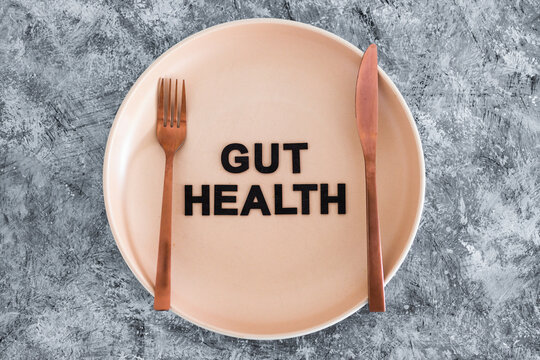Introduction
Your gut plays a crucial role in your overall health, influencing everything from digestion to immunity and even mental well-being. As we move into 2025, the importance of maintaining a healthy microbiome has never been more clear. With growing research on the gut-brain connection, gut health is now recognized as a cornerstone of wellness.
A balanced microbiome supports good digestion, prevents inflammation, and enhances the body’s ability to absorb nutrients. However, our modern diets, stress, and environmental factors can disrupt the delicate balance of bacteria in the gut, leading to various health issues.
Fortunately, 2025 is a great time to focus on nurturing your gut health through dietary changes. In this article, we’ll explore the top foods for gut health in 2025 and how they contribute to a happy microbiome. By incorporating these gut-friendly foods into your daily meals, you can optimize your digestive system, boost your immune function, and improve your overall well-being.
What is Gut Health?

Gut health refers to the balance and function of the microbiome, the community of bacteria, viruses, fungi, and other microorganisms living in the digestive system. These microorganisms play a vital role in digesting food, producing essential vitamins, and protecting the body from harmful pathogens.
A healthy gut is one where beneficial bacteria outnumber harmful bacteria. The balance of the microbiome can influence many aspects of health, including immune function, weight management, mood, and mental clarity. Therefore, maintaining a healthy microbiome is crucial for overall wellness.
In 2025, there’s increasing awareness about the connection between gut health and chronic diseases such as heart disease, diabetes, and autoimmune disorders. This has prompted many people to explore how their diet can impact their gut microbiome.
Top Foods for a Healthy Microbiome in 2025
Certain foods are packed with nutrients that support the growth of beneficial bacteria in the gut. These foods can help maintain a balanced microbiome, improve digestion, and enhance nutrient absorption. Let’s take a look at some of the best gut-healthy foods to incorporate into your diet in 2025.
1. Fermented Foods
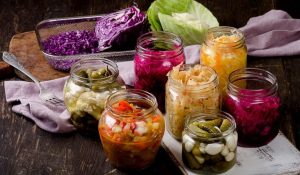
Fermented foods are some of the best foods for gut health. These foods contain probiotics, which are live beneficial bacteria that can help restore the balance of the microbiome. Probiotics support digestion, enhance immune function, and can even improve mental health.
Common fermented foods include:
- Yogurt: A great source of probiotics, particularly if it’s labeled “live and active cultures.”
- Kimchi: A Korean dish made from fermented vegetables, often cabbage and radishes, that’s packed with probiotics and fiber.
- Sauerkraut: Fermented cabbage rich in fiber and probiotics.
- Kefir: A fermented milk drink that’s rich in both probiotics and yeast.
- Miso: A fermented soybean paste that’s often used in soups.
Why It’s Effective: Fermented foods introduce a variety of beneficial bacteria into your gut, which helps maintain a healthy balance of microbes and supports digestion.
2. Prebiotic-Rich Foods
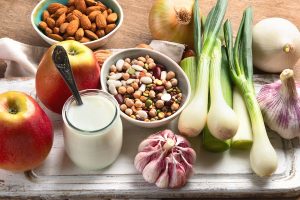
Prebiotics are non-digestible fibers that feed the beneficial bacteria in your gut. Eating prebiotic-rich foods helps these beneficial bacteria thrive, contributing to a healthy microbiome. Prebiotics can also improve gut motility and digestion.
Some excellent sources of prebiotics include:
- Garlic: Contains inulin, a prebiotic fiber that promotes the growth of healthy gut bacteria.
- Onions: Like garlic, onions are rich in prebiotics that support gut health.
- Bananas: A good source of resistant starch, which acts as a prebiotic.
- Asparagus: Contains fiber that nourishes gut bacteria and supports digestion.
- Leeks: A relative of garlic and onions, leeks are packed with prebiotic fibers.
Why It’s Effective: Prebiotic foods feed the beneficial bacteria in your gut, helping them multiply and improving overall digestive health.
3. High-Fiber Foods
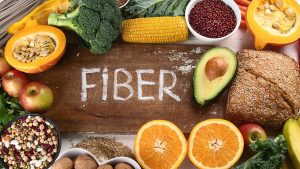
A fiber-rich diet is essential for maintaining healthy digestion and supporting a balanced microbiome. Fiber helps regulate bowel movements, reduce constipation, and maintain a healthy weight. Additionally, fiber acts as food for the good bacteria in your gut, promoting their growth.
The best sources of fiber include:
- Whole grains: Oats, quinoa, and brown rice are excellent sources of fiber.
- Fruits: Apples, berries, and pears provide soluble fiber that supports digestion.
- Vegetables: Leafy greens like spinach and kale, as well as root vegetables like sweet potatoes, are high in fiber.
- Legumes: Beans, lentils, and chickpeas are excellent sources of fiber and protein.
Why It’s Effective: Fiber improves gut motility and encourages the growth of healthy bacteria. It also helps keep you full longer and promotes healthy weight management.
4. Polyphenol-Rich Foods
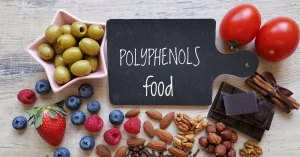
Polyphenols are plant compounds found in many fruits and vegetables. They have been shown to promote the growth of beneficial bacteria in the gut while inhibiting harmful bacteria. Polyphenols also have antioxidant properties that protect the gut lining and reduce inflammation.
Top polyphenol-rich foods include:
- Berries: Blueberries, strawberries, and raspberries are loaded with polyphenols.
- Green tea: Rich in catechins, a type of polyphenol, green tea is excellent for gut health.
- Dark chocolate: Contains flavonoids, a powerful type of polyphenol.
- Nuts: Walnuts, almonds, and hazelnuts contain polyphenols that promote a healthy gut.
- Olive oil: High in oleuropein, a polyphenol that supports gut health.
Why It’s Effective: Polyphenols support the growth of beneficial gut bacteria and reduce inflammation, helping to maintain a balanced microbiome.
5. Bone Broth

Bone broth is an ancient food that has gained popularity in recent years due to its digestive benefits. Made by simmering bones and connective tissues, bone broth is rich in collagen, amino acids, and minerals. These nutrients help support the gut lining, promote digestion, and reduce inflammation.
Why It’s Effective: Bone broth is particularly helpful for people with leaky gut or other digestive issues. It soothes the digestive tract and provides nutrients that promote healing and repair.
Tips for Supporting Your Gut Health in 2025
In addition to incorporating gut-friendly foods into your diet, there are a few lifestyle habits you can adopt to further support your microbiome:
- Stay Hydrated: Drinking plenty of water helps digestion and supports the growth of beneficial bacteria.
- Manage Stress: Chronic stress can negatively impact your gut health. Try mindfulness practices, yoga, or meditation to keep stress levels in check.
- Get Enough Sleep: Sleep is essential for gut health, as it allows the body to repair and regenerate. Aim for 7-9 hours of sleep per night.
- Exercise Regularly: Physical activity helps support gut motility and improves digestion.
Conclusion
As we look ahead to 2025, taking care of our gut health has never been more important. The foods we eat directly impact the balance of our microbiome, which plays a crucial role in our overall health. By incorporating fermented foods, prebiotics, fiber-rich foods, polyphenol-rich foods, and bone broth into your diet, you can support your gut health and improve your digestion.
Adopting these habits and focusing on gut health will not only improve your digestion but also help you maintain a healthier, more vibrant lifestyle. A balanced microbiome can lead to better immunity, a healthier weight, and improved mood—setting you up for long-term well-being.
Take the Next Step
Start improving your gut health today by adding some of these top foods to your diet. Whether it’s enjoying a bowl of yogurt, sipping on green tea, or adding more fiber to your meals, small changes can lead to significant improvements in your overall health. Keep your microbiome happy and healthy as we move into 2025!






